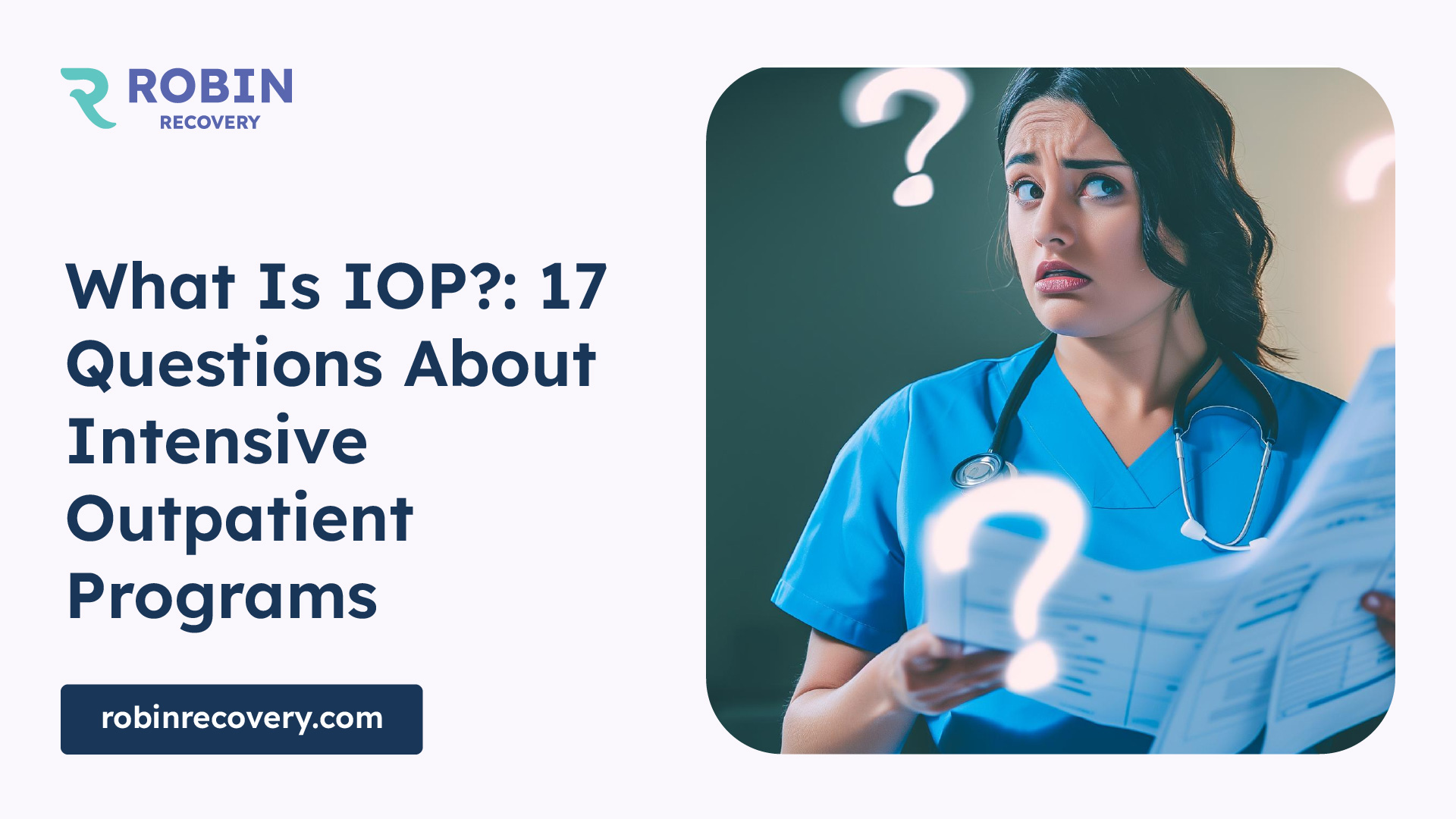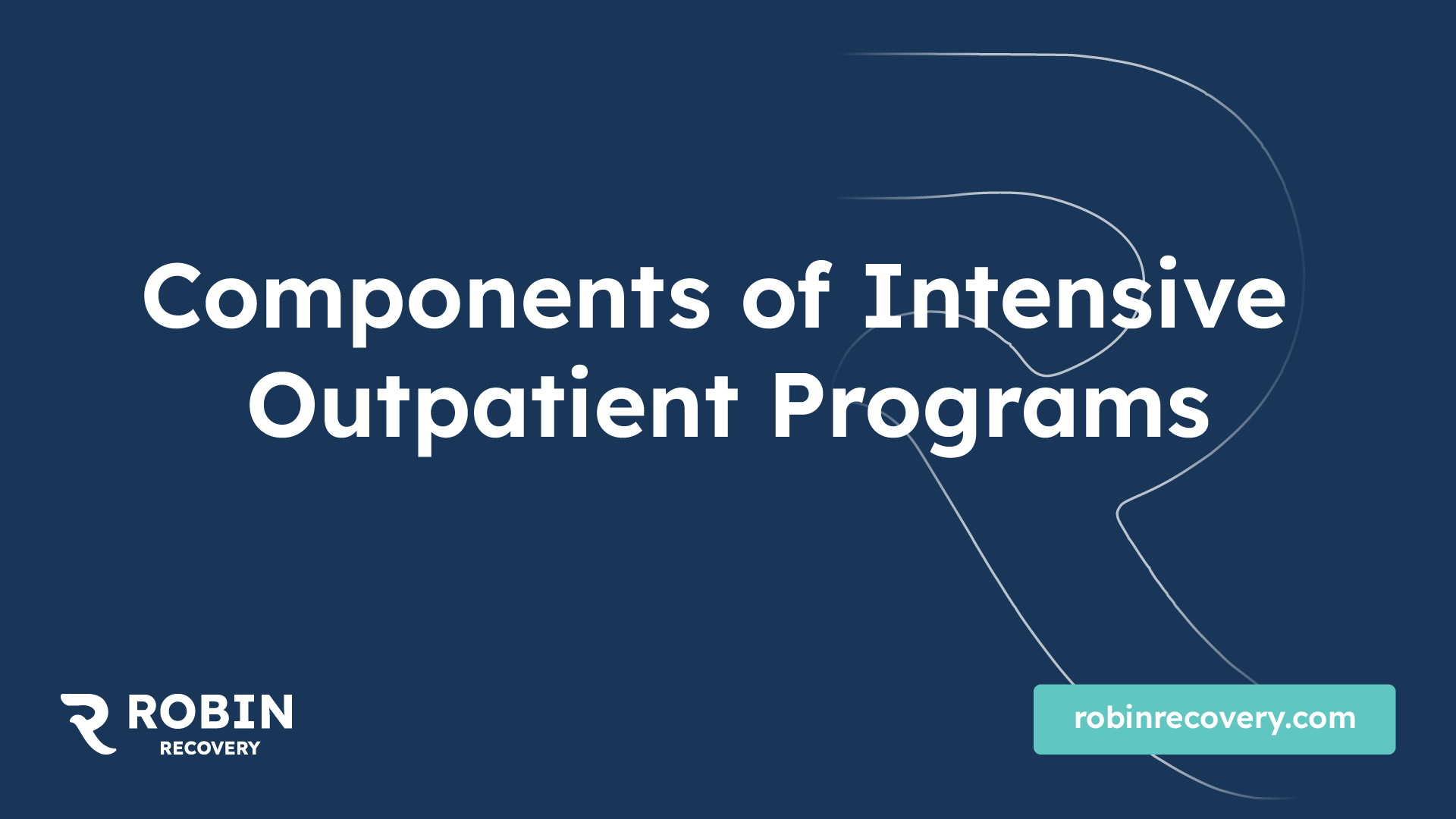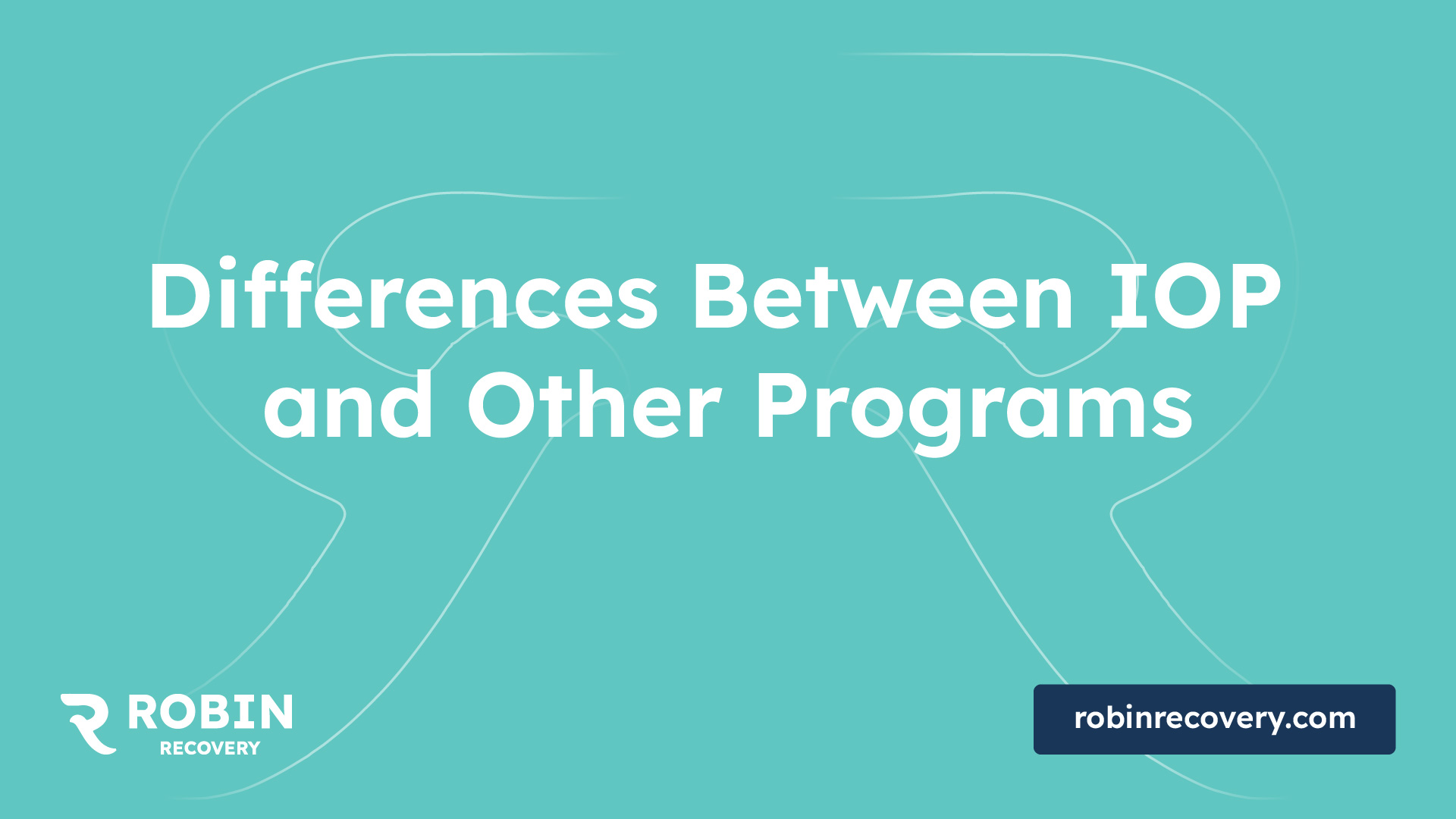What Is IOP?: 17 Questions About Intensive Outpatient Programs

Understanding Intensive Outpatient Programs
Exploring the realm of addiction, Intensive Outpatient Programs (IOPs) play a significant role in providing comprehensive treatment options for individuals seeking support. Let's delve into the definition, purpose, structure, and duration of IOPs.

Definition and Purpose
An Intensive Outpatient Program (IOP) offers an alternative to residential treatment by providing therapy in an outpatient setting, allowing individuals to reside at home and continue with their daily responsibilities such as work and family obligations. This structure enables individuals to access necessary treatment while maintaining their usual routines. IOPs are designed to address various mental health challenges such as depression, anxiety, PTSD, and substance abuse [1].
Structure and Duration
Typically, an IOP is a part-time treatment program that requires individuals to participate for a specific number of hours per week. The program is structured with a weekly schedule that may include three three-hour blocks of therapy, totaling nine hours of programming. This intensive approach allows for focused treatment while accommodating individuals' external commitments. The duration of an IOP program often spans three to four months, providing individuals with the necessary support over an extended period to facilitate recovery.
IOPs offer a blend of inpatient and outpatient care, providing immersive support in a comfortable outpatient environment. This unique approach allows individuals to remain connected to their community and support systems while receiving the intensive care they require. The program duration can vary, typically lasting from a few weeks to a couple of months, depending on the individual's needs and progress [2].
These programs are particularly beneficial during challenging times, burnout, transitions from inpatient care, stepping up from outpatient care, or when individuals require additional support due to medication changes. IOPs aim to help individuals stabilize, find inner peace, and develop essential mental health skills to cope with life stressors and triggers effectively [2].
Understanding the structure and purpose of IOPs is essential for individuals seeking comprehensive mental health treatment options that provide intensive support while allowing for flexibility and continuity in their daily lives.
Components of Intensive Outpatient Programs
Exploring the core elements of Intensive Outpatient Programs (IOP) sheds light on the therapeutic activities that form the foundation of these programs, emphasizing psychotherapy and group therapy.

Therapeutic Activities
At the heart of Intensive Outpatient Programs are the therapeutic activities designed to support individuals in their journey towards recovery. These activities are structured to address underlying issues, develop coping strategies, and promote emotional well-being. Therapeutic activities in an IOP setting focus on individual growth and healing, fostering a safe space for participants to explore their emotions and experiences.
One of the key components of therapeutic activities in an IOP is individual psychotherapy. This form of therapy allows individuals to work one-on-one with a trained therapist to delve into personal challenges, set goals, and develop strategies for overcoming obstacles. Through individual psychotherapy sessions, participants can gain insights into their behaviors, emotions, and thought patterns, paving the way for positive change and growth.
Psychotherapy and Group Therapy
In addition to individual sessions, group therapy plays a pivotal role in Intensive Outpatient Programs. Group therapy sessions provide a supportive environment where individuals can connect with others facing similar struggles, share experiences, and offer mutual encouragement. Group therapy sessions are guided by a therapist who facilitates discussions, activities, and exercises aimed at fostering communication, trust, and empathy among participants.
The interactive nature of group therapy enables individuals to receive feedback, gain perspectives from others, and practice vital social skills in a safe and structured setting. Engaging in group therapy can promote a sense of community, reduce feelings of isolation, and enhance interpersonal relationships. The collaborative atmosphere of group therapy encourages individuals to explore diverse viewpoints, learn from shared experiences, and build a network of support within the IOP setting.
By combining individual psychotherapy with group therapy sessions, Intensive Outpatient Programs create a comprehensive and holistic approach to treatment. These therapeutic activities are tailored to address the unique needs of each individual, guiding them towards recovery, personal growth, and lasting change. Through the power of psychotherapy and group therapy, individuals in IOP can embark on a transformative journey towards healing and well-being.
Differences Between IOP and Other Programs
When considering treatment options for addiction, understanding the distinctions between intensive outpatient programs (IOP) and other programs is essential. Outpatient programs, whether basic outpatient therapy or an IOP, provide individuals with alternatives to residential treatment or serve as a step-down level of care following residential treatment. The choice between these programs depends on an individual's recovery needs and preferences [1].

Residential vs. Outpatient Treatment
Residential treatment involves individuals residing at a treatment facility for a specified period, often ranging from weeks to months. This immersive environment provides round-the-clock care and support to individuals recovering from addiction. In contrast, outpatient treatment allows individuals to attend therapy sessions and receive treatment while continuing to live at home. Outpatient programs offer flexibility and the ability to maintain daily responsibilities like work or family commitments.
AspectResidential TreatmentOutpatient TreatmentSettingInpatient facilityTreatment center or homeDuration of StayWeeks to monthsFlexible hoursSupport Provided24/7 supervisionScheduled therapy sessionsImmersion LevelHigh intensityLower intensity
Basic Outpatient vs. Intensive Outpatient Programs
Basic outpatient services, similar to residential programs but at a lower intensity level, offer a range of recovery services such as individual and group therapy sessions, classes, and Twelve Step integration. These services are recommended as part of an aftercare strategy to prevent relapse during the early months of recovery [1].
On the other hand, intensive outpatient programs (IOP) are designed to provide a higher level of care than basic outpatient services. IOPs offer structured treatment plans that typically include more frequent therapy sessions, group counseling, and specialized interventions. The goal of an IOP is to provide intensive support while allowing individuals to continue with their daily routines and responsibilities. These programs are particularly beneficial for individuals who require a more structured and comprehensive treatment approach but do not need 24-hour supervision.
AspectBasic Outpatient ProgramIntensive Outpatient Program (IOP)Intensity of TreatmentLower intensityHigher intensityFrequency of Therapy SessionsTypically fewer sessions per weekMore frequent sessions per weekStructured SupportModerate level of structure and supportStructured treatment plans with intensive supportLevel of CareStep-down care after residential treatmentIntensive care with greater focus on recovery goals
Understanding the differences between residential, basic outpatient, and intensive outpatient programs can help individuals make informed decisions about the most suitable treatment approach based on their recovery needs and preferences. Tailoring treatment services to individual needs has been linked to improved outcomes [3]. If you are considering an IOP, it's essential to assess your treatment needs comprehensively to ensure that you receive the appropriate level of care and support tailored to your specific requirements.
Effectiveness and Adaptability of IOPs
When exploring the effectiveness and adaptability of Intensive Outpatient Programs (IOPs), it becomes evident that these programs play a crucial role in the treatment of addiction. Research findings have consistently highlighted the positive impact of IOPs on individuals struggling with substance use disorders.
Research Findings
Studies, as cited by NCBI, have shown that the level of evidence for IOP research is high, with multiple randomized trials and analyses demonstrating comparable outcomes to inpatient or residential care. These studies have reported significant reductions in problem severity and increased days of abstinence for participants receiving intensive outpatient or day treatment services compared to those in inpatient or residential care. Overall, the literature suggests that IOPs are equally effective in treating alcohol and drug use disorders, making them a valuable component of the continuum of care.
Tailoring Treatment to Individual Needs
Intensive Outpatient Programs (IOPs) are designed to be adaptable and flexible to meet the diverse needs of individuals with substance use disorders. These programs, as described by NCBI Bookshelf, offer a range of services and settings, providing an intermediate level of ambulatory care within the continuum of treatment services.
One key aspect of the adaptability of IOPs is the ability to tailor treatment to individual needs. IOPs provide an increased frequency of contact and services compared to traditional outpatient treatment, with structured programming typically offered for 9 hours or more per week spread over 3 to 5 days. The number of programming hours can vary from 6 to 30 hours based on the unique needs of each client, ensuring that treatment is personalized and comprehensive.
By customizing treatment plans to address the specific challenges and goals of each individual, IOPs can effectively cater to a wide range of addiction issues. This personalized approach enhances the overall effectiveness of the program and increases the likelihood of successful outcomes for participants.
The ability of IOPs to adapt to the evolving needs of individuals with substance use disorders highlights their importance in providing comprehensive and individualized care. The research-supported effectiveness and flexible nature of IOPs make them an essential component of addiction treatment, offering individuals a pathway to recovery that is tailored to their specific circumstances and requirements.
Key Considerations for IOP Admission
When considering admission to an intensive outpatient program (IOP), there are critical factors to take into account to ensure the effectiveness of the treatment. Two key considerations for IOP admission are assessment and matching services, as well as strategies for treatment completion.
Assessment and Matching Services
Assessment and matching services play a pivotal role in the success of IOPs. It is essential that IOP programs conduct comprehensive assessments to understand the individual needs of clients. By tailoring treatment services according to these assessments, programs can effectively address the specific challenges and requirements of each individual. Research has shown that matching treatment services to individual needs is associated with improved outcomes [3].
The initial assessment should encompass a thorough evaluation of the client's medical history, substance use patterns, mental health status, and social circumstances. This information helps in creating a personalized treatment plan that targets the root causes of addiction and provides the necessary support for recovery. By matching treatment services to the unique needs of each client, IOPs can enhance the effectiveness of the program and increase the likelihood of successful outcomes.
Strategies for Treatment Completion
Ensuring that clients complete the full course of treatment is crucial for the success of IOPs. Early termination of treatment can have detrimental effects on clients and staff morale, potentially leading to an increased risk of relapse. To promote treatment completion, IOP programs should implement various strategies to support and motivate clients throughout their journey.
Some effective strategies for treatment completion include conducting preadmission interviews to establish rapport and set expectations, delivering regular reminders about appointments and program activities, and minimizing the initial call-to-appointment delay. These measures help to engage clients from the outset and maintain their commitment to the treatment process. Additionally, making the initial appointment available on demand and creating a welcoming and supportive environment during the first encounter with the program can encourage clients to take ownership of their recovery [3].
Understanding the factors that influence treatment completion, such as demographic characteristics and substance abuse patterns, can also guide IOPs in developing targeted interventions to support clients throughout the program. By implementing these strategies and considerations, IOPs can enhance client retention, promote successful treatment outcomes, and support individuals in their journey towards sustained recovery.
Benefits and Outcomes of IOPs
Intensive Outpatient Programs (IOPs) play a crucial role in supporting individuals in their journey towards recovery from addiction. These programs offer various benefits that contribute to relapse prevention, recovery, community support, and aftercare.
Relapse Prevention and Recovery
One of the primary benefits of IOPs is their effectiveness in relapse prevention and supporting long-term recovery. Individuals participating in intensive outpatient programs are equipped with the necessary tools and techniques to maintain sobriety and manage addiction disorders [4]. By immersing themselves in therapy while still managing their work and personal responsibilities, participants can apply the principles learned in treatment to their daily lives. This practical application of learned skills enhances their ability to cope with triggers and stressors, reducing the likelihood of relapse.
Studies have shown that individuals who engage in intensive outpatient or day treatment services experience significant reductions in problem severity and increased days of abstinence compared to those in inpatient or residential care [5]. The outcomes of IOPs are equally as effective as inpatient treatment, highlighting the importance and success of these programs in supporting recovery and preventing relapse.
Community Support and Aftercare
Another valuable aspect of IOPs is the sense of community support and camaraderie that participants experience. In these programs, individuals have the opportunity to connect with peers who are also on the path to recovery, creating a supportive network that fosters encouragement and understanding. This community support plays a significant role in boosting motivation, accountability, and overall well-being during the recovery process.
Furthermore, IOPs often provide comprehensive aftercare services to ensure that individuals have ongoing support and resources post-treatment. Aftercare may include continued therapy sessions, support groups, relapse prevention planning, and access to community resources. By offering a continuum of care beyond the structured program, IOPs help individuals transition back into their daily lives while maintaining the support needed to sustain their recovery journey.
By focusing on relapse prevention, recovery support, community engagement, and aftercare services, IOPs serve as a vital component of addiction treatment. These programs empower individuals to overcome challenges, build resilience, and cultivate a supportive environment that promotes long-term sobriety and well-being.
Virtual Intensive Outpatient Programs
In recent times, virtual intensive outpatient programs (IOPs) have gained popularity for their flexibility and accessibility, especially in the realm of mental health treatment. These programs are designed to provide participants with the opportunity to receive treatment from the comfort of their own homes, utilizing a blend of individual therapy, group sessions, and other outpatient services.
Definition and Features
Virtual IOPs offer a comprehensive treatment approach that mirrors traditional in-person intensive outpatient programs. Participants engage in therapy sessions via secure online platforms, allowing for real-time interaction with therapists and peers. These programs often include individual counseling, group therapy, psychoeducation, and support services tailored to the individual's needs.
One of the key features of virtual IOPs is the flexibility they provide. Participants can attend sessions from anywhere with an internet connection, eliminating the need for travel to a physical treatment facility. This flexibility is particularly beneficial for individuals with busy schedules or those who may face challenges accessing traditional in-person services.
Insurance Coverage and Accessibility
Insurance coverage for virtual intensive outpatient programs is widely recognized by many health insurance plans, making these programs more accessible and sustainable for individuals seeking mental health treatment [6]. Most health insurance plans acknowledge the importance of mental health and may cover outpatient treatment, including both in-person and virtual IOP treatment models.
Verifying insurance coverage for online IOP treatment can help individuals understand the financial aspects of their treatment journey. By clarifying coverage details and potential out-of-pocket costs, individuals can focus on their recovery without financial stress. It is recommended to check with insurance providers to confirm benefits and any associated expenses related to virtual IOP treatment.
The emergence of virtual intensive outpatient programs has revolutionized access to mental health care, offering a convenient and effective alternative to traditional in-person services. By leveraging technology and telehealth platforms, virtual IOPs ensure that individuals can receive the support they need from the comfort of their homes, promoting continuity of care and enhancing treatment outcomes.
References
[2]:
[3]:
[4]:
[5]:
[6]:
